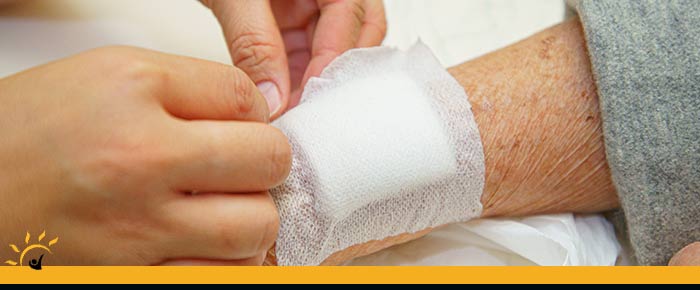What Is A Laceration?
Professionals at Priority Urgent Care and Walk-In Clinic are here to help treat lacerations. If you have pain, bruising, bleeding, or swelling from a laceration, seek medical attention right away! For more information, please contact us or book an appointment online. Walk-ins are welcome! We have convenient locations to serve you in Cromwell CT, East Haven CT, Ellington CT, Newington, CT, Oxford, CT, Unionville CT and Wallingford, CT.




Table of Contents:
What is a laceration injury?
What is the actual difference between a laceration and a cut?
How is a laceration treated?
Do lacerations require stitches?
Lacerations happen and are the most common cause of emergency room visits in the United States, with between 7 to 9 million cases being reported annually. Some lacerations can be treated at home with a first aid kit, while others more serious, may require emergency care, especially if the wound is deep and the bleeding just won’t stop.
A laceration is a cut that goes right through the skin. Cuts that are small may be cared for at home, but a deep laceration that goes beneath the skin through the fat layer or to the muscle layer may need medical attention immediately. Lacerations on the hands, fingers, and toes are common and typically heal on their own. The treatment however for a laceration really depends on how deep the cut actually is. Treating a laceration properly will reduce the risk of infection, scarring, and hospitalization, and may save your life.
A cut is typically defined as a skin wound caused by a sharp object, like a shard of glass, or a knife. A laceration is commonly identified as a cut with a jagged or torn wound that is caused by a sharp object. A laceration, or a deep cut, can affect muscles, tendons, ligaments, blood vessels, nerves, or bones. A laceration or deep cut can also become infected if it is not treated properly.
Healthcare professionals recommend that you treat lacerations much the same way as a cut. When you experience a laceration, apply direct pressure to the area, then clean the area with warm water and gentle soap, and also apply an antibiotic ointment to help reduce the chance of infection. You should also put a sterile bandage on the area and check regularly for infection. Since lacerations can be very painful, you may want to apply an ice application, and if this doesn’t work try using over-the-counter pain relievers. Elevating the wound also helps too. You need to call a healthcare provider if the bleeding won’t stop, there is swelling, redness, or pain around the wound, red streaks visible near the injury pointing toward the heart, pus discharge from the wound, numbness in the area of injury, or have a temperature of over 100.4F.
When you know the bleeding has stopped, check with your doctor on whether or not you need stitches. A wound that is deeper or longer than a half-inch or is deep enough to expose bone, fatty tissue, or muscle will require stitches. While larger lacerations can eventually heal on their own without stitches, stitching is typically recommended as it promotes faster healing, and keeps bacteria out of the wound, therefore helping reduce the risk of infection and help prevent scarring.
In the event you are taken to the hospital, a doctor may examine the wound, decide if a surgeon is needed, and may ask about your medical history, allergies, and how the wound occurred. Your doctor may also talk to you about your pain tolerance and may discuss options for closing the laceration. For minor lacerations, local anesthesia may be used to numb the area around the wound, and for more severe lacerations general anesthesia may be needed to block pain and keep you asleep. In some cases, no anesthesia is needed.
If you have a laceration and need medical attention, we welcome you to contact us through our website. Priority Urgent Care and Walk-In Clinic offer laceration treatment. We are open on weekdays from 8:00 AM to 7:45 PM, and on weekends from 9:00 AM to 4:45 PM. We serve patients from Cromwell CT, East Haven CT, Ellington CT, Newington, CT, Oxford, CT, Unionville CT, Wallingford, CT, and BEYOND!

Additional Services You May Need
▸ Urgent Care
▸ DOT Physicals
▸ Worker’s Injury Treatment
▸ Drug Testing
▸ Physical Exams
▸ School/Sports Physicals
▸ Sports Injury Treatment
▸ X-Ray Services
▸ Pediatric Urgent Care
▸ Poison Ivy
▸ STD Testing
▸ Immunizations & Vaccinations
▸ Lab Testing
▸ Pre-Employment Physical
▸ Employer Services


